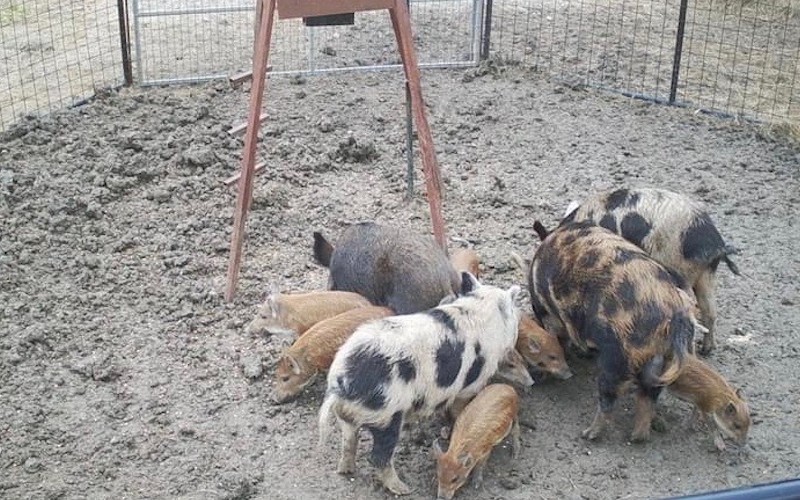A long-time nuisance to rural Texas communities, feral hogs are continuing to multiply at an increased rate; however, now their new backyards are encroaching closer into city limits.
“There are many more areas developing now, which cause habitats to be removed; commercial and housing properties are pushing wildlife out,” said Wyatt Walton, owner of Lone Star Trapping.
Prior to several years ago, Walton’s company serviced primarily rural areas, assisting ranchers in trapping the unwanted invasive species. As Walton noticed more hogs found in urban areas, he decided to expand his company’s services to reach the supply-and-demand, Walton said.
Despite not being native to Texas, according to Texas A&M AgriLife there are over 5 million feral hogs in the state and of the state’s 254 counties, these animals can be found in all but El Paso.
Feral hogs disturb vegetation and soil due to their “rooting” tendencies – digging with their nose in the dirt to find grubs and other food – and are dangerous when provoked, said the Texas Invasive Species Institute.
Populations of these pests are not decreasing any time soon, as there are no forms of birth control for female sows or toxins and repellants to control their growing numbers, according to the Institute.
Feral hogs continue to multiply at a quick rate due to the fact that sows can have a litter of piglets every three months. Depending on access to proper food and clean water, the liter can consist of between eight to 15 piglets. Once female piglets reach six to eight months, they too can begin reproducing, Walton said.
These animals are not game animals,
Walton and his colleagues at Lone Star Trapping, do not use the typical box traps with tripwire; instead, they have implemented the use of electronic cellular trapping technologies.
“It is the most efficient way we are able to catch a full group of hogs,” Walton said. “Instead of having no control over when an animal is trapped, risking tripping the trap and capturing a non-target species, we have the ability to shut the trap when we want to.”
Of the areas they service, Walton said the highest number of calls come from The Woodlands, Tomball, Dickinson and Northwest Houston.
“I would say Houston is one of the cities we see with a higher number of calls, simply because of how much and fast it’s grown,” Walton said.
Although many service requests come from developments, residences and larger outdoor spaces, the company has answered some that are located close to businesses or other public facilities.
“We removed almost 20 hogs not even 600 feet behind a Baptist church, just off the edge of the church’s recreational areas where they play baseball or have their field days,” Walton said. “Families were gathering in this space and that was where the pigs were too.”“We removed almost 20 hogs not even 600 feet behind a Baptist church, just off the edge of the church’s recreational areas where they play baseball or have their field days."
tweet this
With these animals roaming private and public spaces, the potential for dangerous interactions between these hogs and humans continues to be a growing concern, Walton said.
Although uncommon, in 2019, a healthcare provider was killed by a feral hog outside of the house of one of her patients.
Walton warns his clients, at the first sight of any vegetation disturbance, to call a certified removal company if they suspect a feral hog is on their property. He also advises them that if they come face-to-face with one, to treat the animal like a bear, backing away and reducing any kind of noise or movement that would engage the animal.
“Half the time they are either in fight or flight mode and usually it is fight rather than flight,” Walton said. “Especially if you are going to be aggressive with them, they will be aggressive right back to you.”


